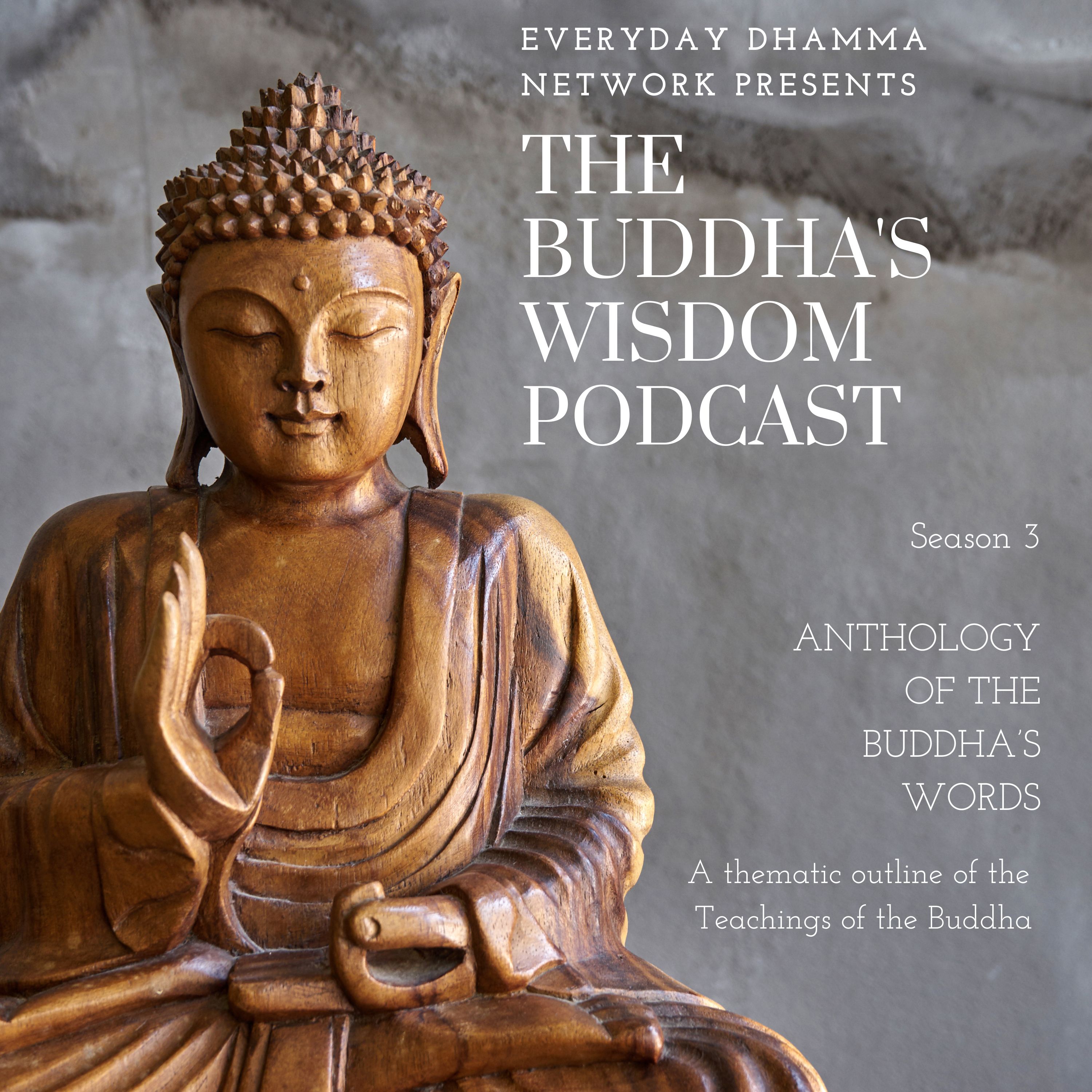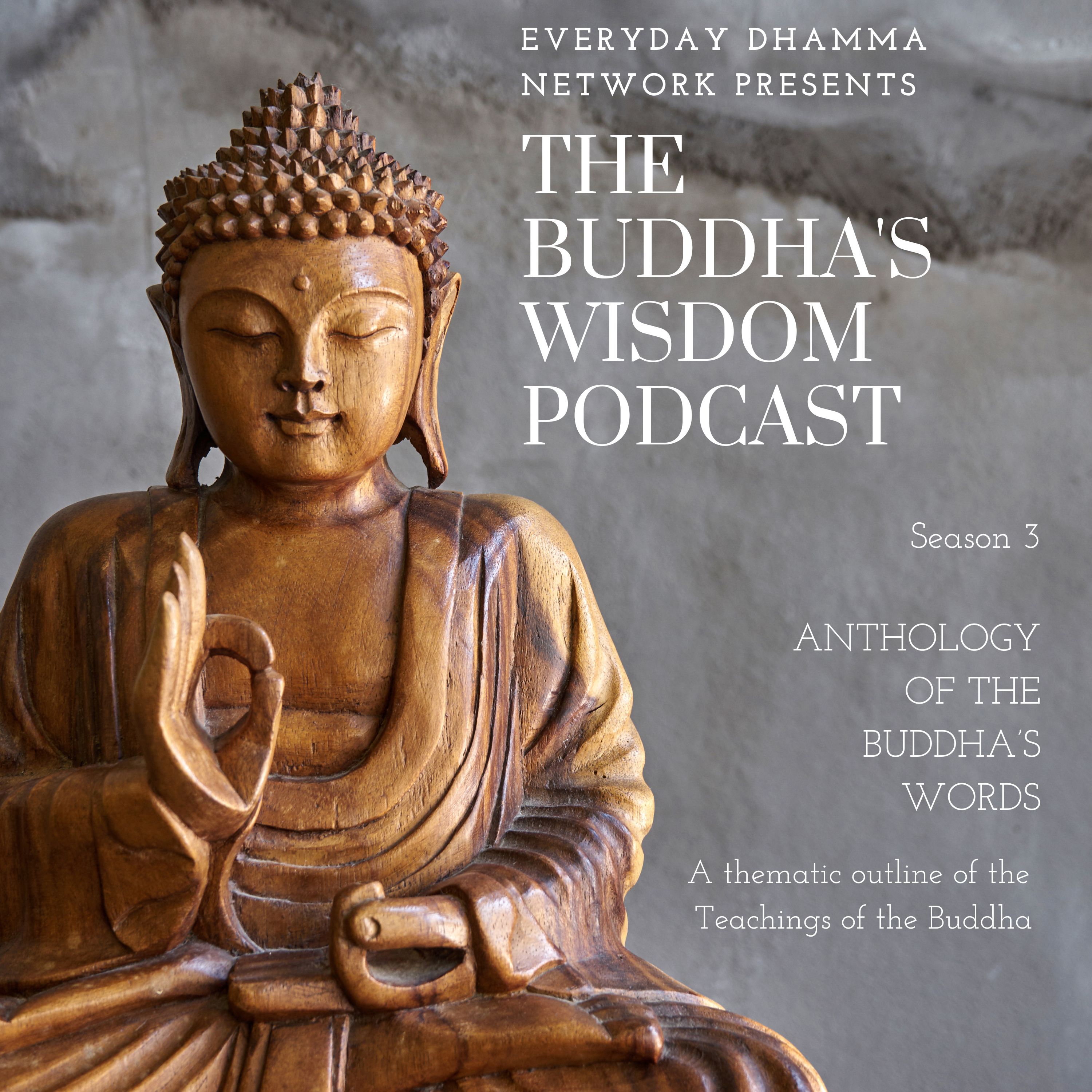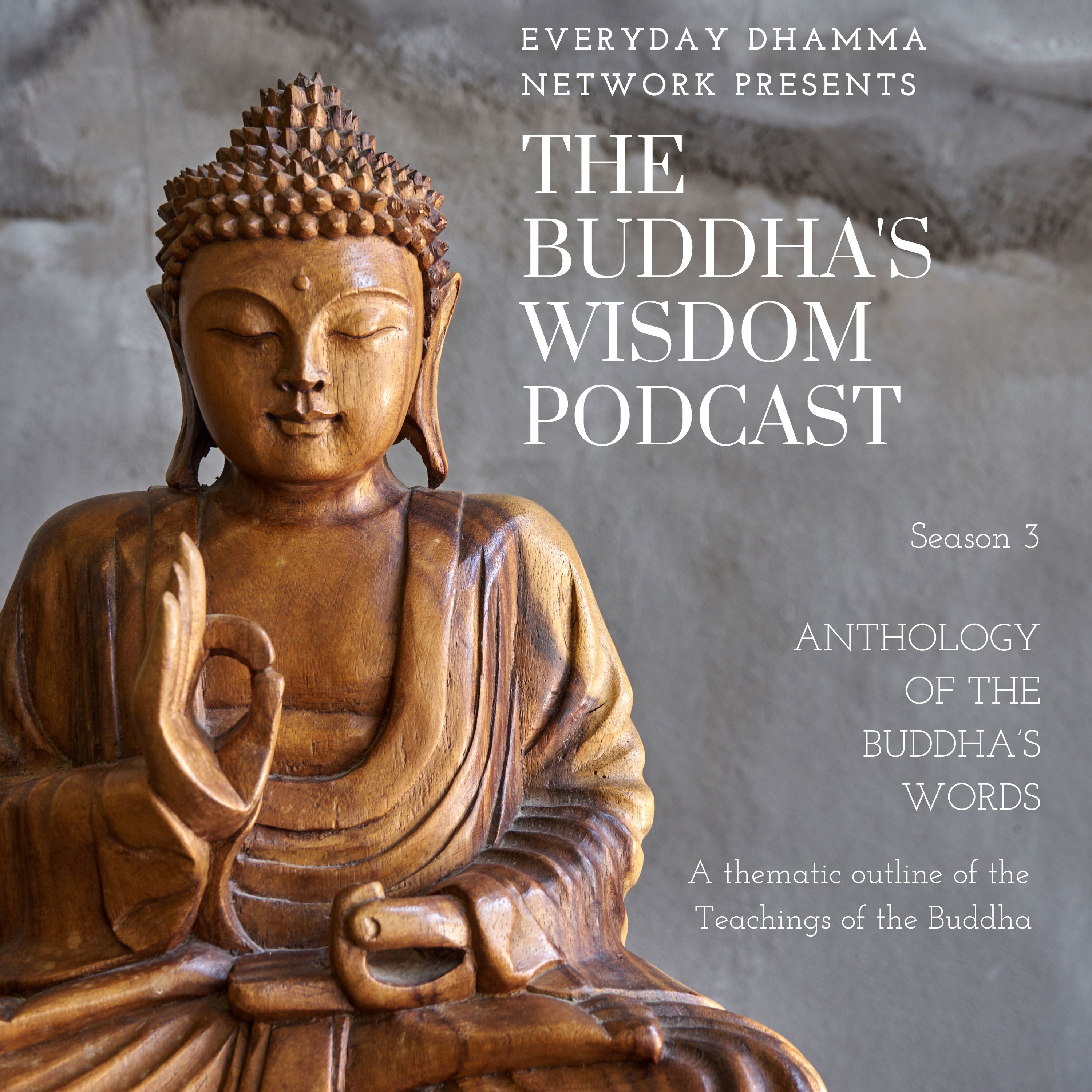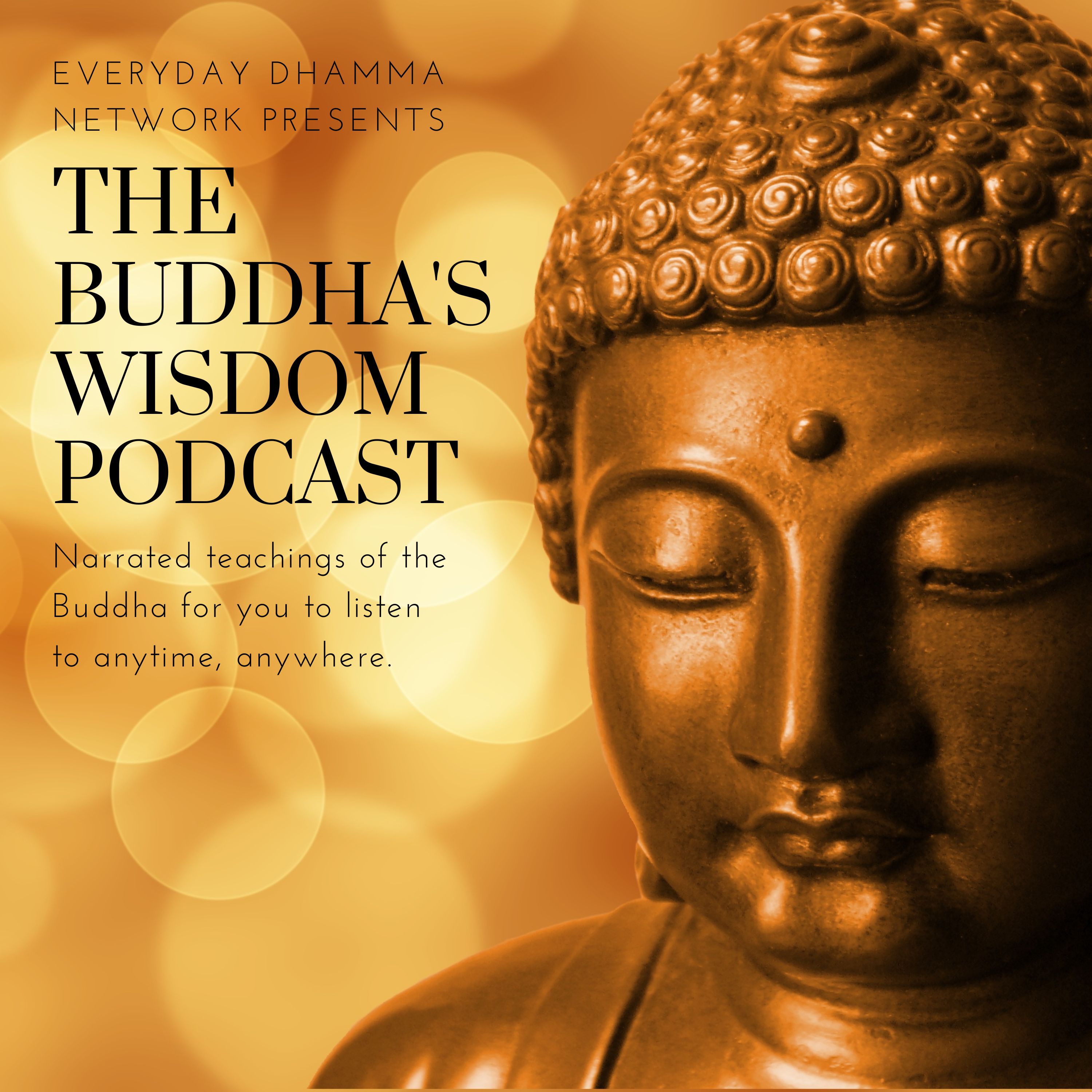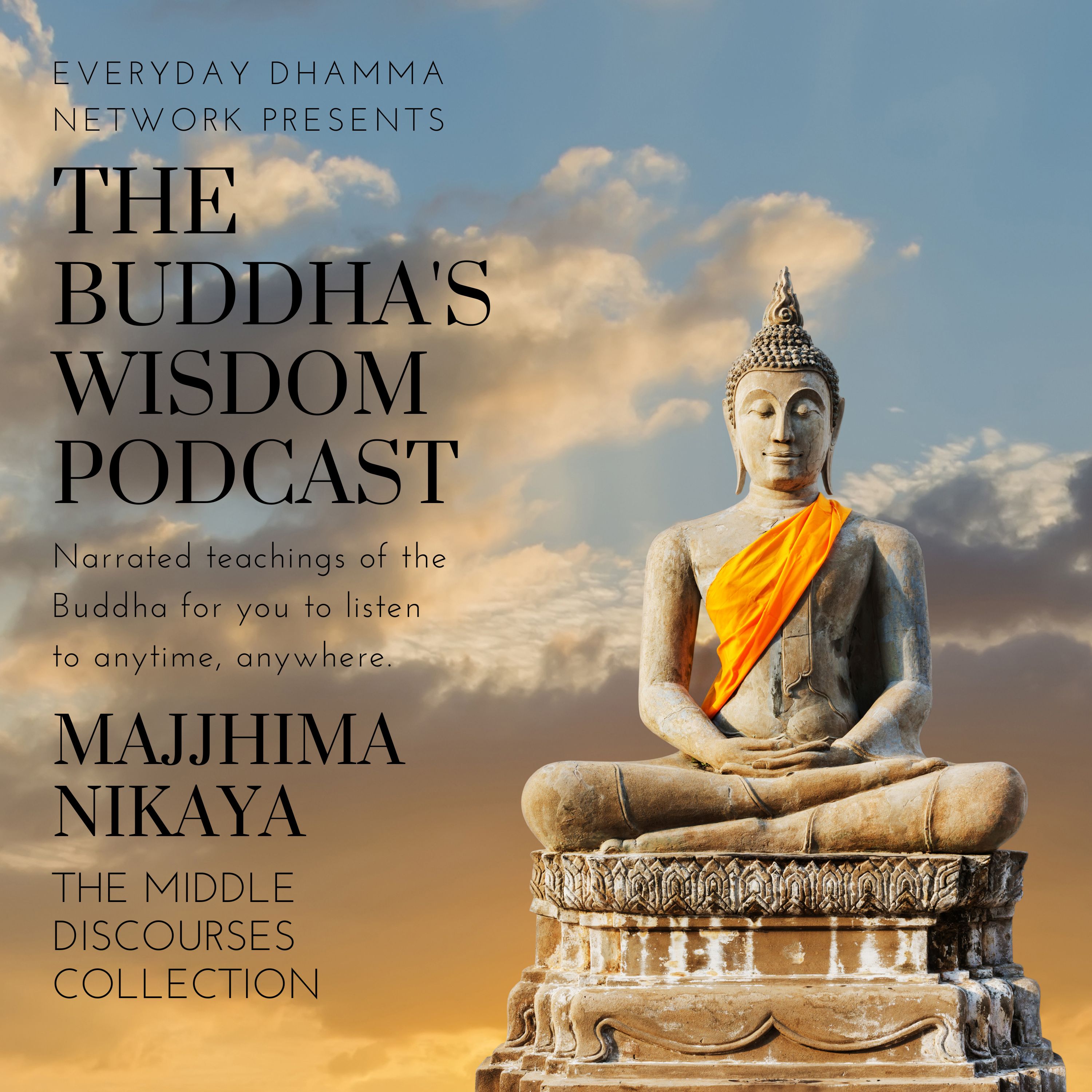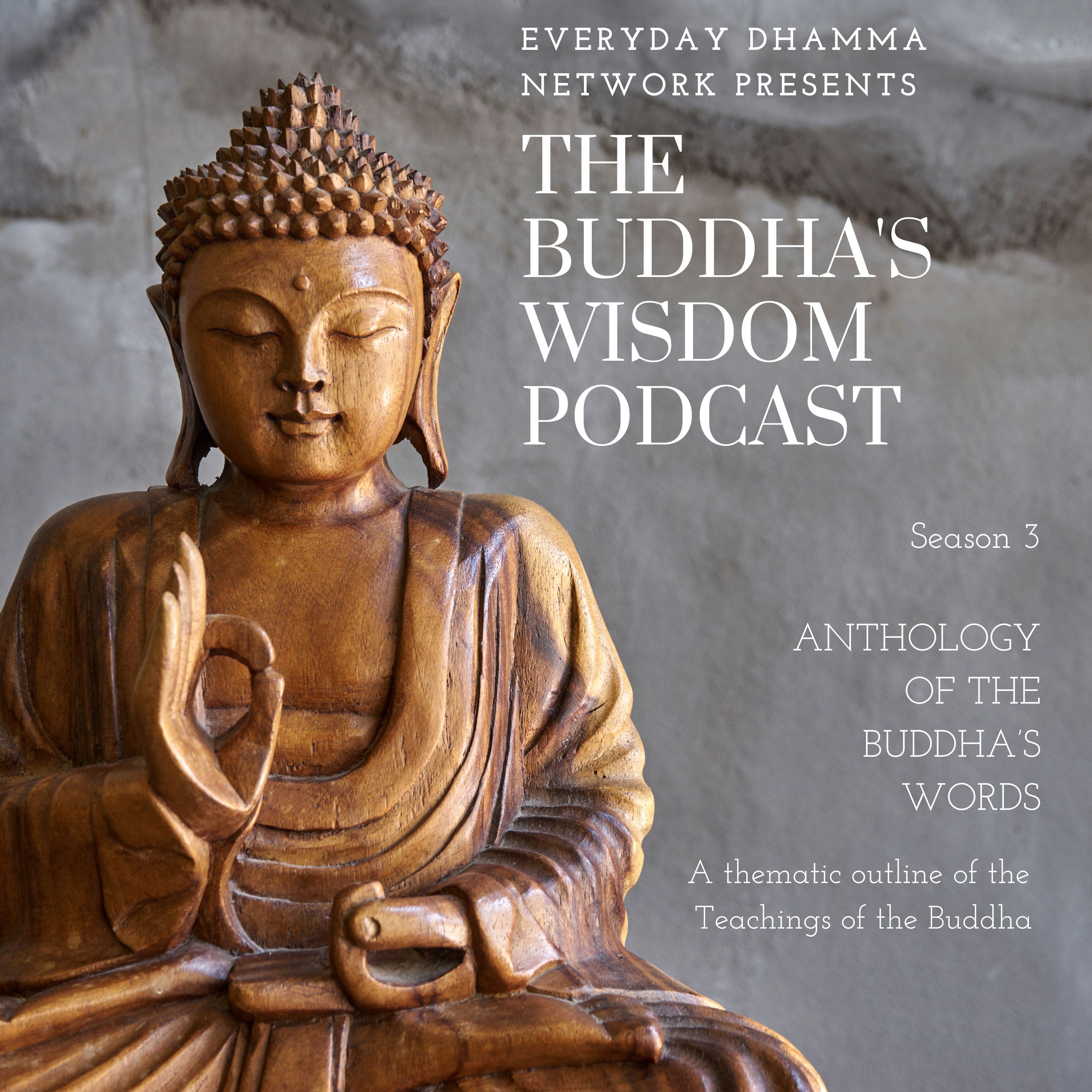Episode Transcript
## Sutta 1 - The Arrow
“Mendicants, an unlearned ordinary person feels pleasant, painful, and neutral feelings. A learned noble disciple also feels pleasant, painful, and neutral feelings. What, then, is the difference between a learned noble disciple and an ordinary unlearned person?”
“When an unlearned ordinary person experiences painful physical feelings they sorrow and wail and lament, beating their breast and falling into confusion. They experience two feelings: physical and mental.
It’s like a person who is struck with an arrow, only to be struck with a second arrow. That person experiences the feeling of two arrows.
In the same way, when an unlearned ordinary person experiences painful physical feelings they sorrow and wail and lament, beating their breast and falling into confusion. They experience two feelings: physical and mental.
When they’re touched by painful feeling, they resist it. The underlying tendency for repulsion towards painful feeling underlies that.
When touched by painful feeling they look forward to enjoying sensual pleasures. Why is that? Because an unlearned ordinary person doesn’t understand any escape from painful feeling apart from sensual pleasures. Since they look forward to enjoying sensual pleasures, the underlying tendency to greed for pleasant feeling underlies that.
They don’t truly understand feelings’ origin, ending, gratification, drawback, and escape. The underlying tendency to ignorance about neutral feeling underlies that.
If they feel a pleasant feeling, they feel it attached. If they feel a painful feeling, they feel it attached. If they feel a neutral feeling, they feel it attached.
They’re called an unlearned ordinary person who is attached to rebirth, old age, and death, to sorrow, lamentation, pain, sadness, and distress; who is attached to suffering, I say.
When a learned noble disciple experiences painful physical feelings they don’t sorrow or wail or lament, beating their breast and falling into confusion. They experience one feeling: physical, not mental.
It’s like a person who is struck with an arrow, but was not struck with a second arrow. That person would experience the feeling of one arrow.
In the same way, when a learned noble disciple experiences painful physical feelings they don’t sorrow or wail or lament, beating their breast and falling into confusion. They experience one feeling: physical, not mental.
When they’re touched by painful feeling, they don’t resist it. There’s no underlying tendency for repulsion towards painful feeling underlying that.
When touched by painful feeling they don’t look forward to enjoying sensual pleasures. Why is that? Because a learned noble disciple understands an escape from painful feeling apart from sensual pleasures. Since they don’t look forward to enjoying sensual pleasures, there’s no underlying tendency to greed for pleasant feeling underlying that.
They truly understand feelings’ origin, ending, gratification, drawback, and escape. There’s no underlying tendency to ignorance about neutral feeling underlying that.
If they feel a pleasant feeling, they feel it detached. If they feel a painful feeling, they feel it detached. If they feel a neutral feeling, they feel it detached.
They’re called a learned noble disciple who is detached from rebirth, old age, and death, from sorrow, lamentation, pain, sadness, and distress; who is detached from suffering, I say.
This is the difference between a learned noble disciple and an unlearned ordinary person.
> A wise and learned person isn’t affected by feelings of pleasure and pain.This is the great difference in skill between the wise and the ordinary.
>
>
> A learned person who has appraised the teaching discerns this world and the next. Desirable things don’t disturb their mind,nor are they repelled by the undesirable.
>
> Both favoring and opposing are cleared and ended, they are no more.Knowing the stainless, sorrowless state,they who have gone beyond rebirth understand rightly.”
>
SN 36:6 - https://suttacentral.net/sn36.6/en/sujato?lang=en
## Sutta 2 - Worldly Conditions
“Mendicants, the eight worldly conditions revolve around the world, and the world revolves around the eight worldly conditions. What eight? Gain and loss, fame and disgrace, blame and praise, pleasure and pain. These eight worldly conditions revolve around the world, and the world revolves around these eight worldly conditions.
An unlearned ordinary person encounters gain and loss, fame and disgrace, blame and praise, and pleasure and pain. And so does a learned noble disciple. What, then, is the difference between a learned noble disciple and an ordinary unlearned person?”
“Our teachings are rooted in the Buddha. He is our guide and our refuge. Sir, may the Buddha himself please clarify the meaning of this. The mendicants will listen and remember it.”
“Well then, mendicants, listen and apply your mind well, I will speak.”
“Yes, sir,” they replied. The Buddha said this:
“Mendicants, an unlearned ordinary person encounters gain. They don’t reflect: ‘I’ve encountered this gain. It’s impermanent, suffering, and perishable.’ They don’t truly understand it. They encounter loss … fame … disgrace … blame … praise … pleasure … pain. They don’t reflect: ‘I’ve encountered this pain. It’s impermanent, suffering, and perishable.’ They don’t truly understand it.
So gain and loss, fame and disgrace, blame and praise, and pleasure and pain occupy their mind. They favor gain and oppose loss. They favor fame and oppose disgrace. They favor praise and oppose blame. They favor pleasure and oppose pain. Being so full of favoring and opposing, they’re not freed from rebirth, old age, and death, from sorrow, lamentation, pain, sadness, and distress. They’re not freed from suffering, I say.
A learned noble disciple encounters gain. They reflect: ‘I’ve encountered this gain. It’s impermanent, suffering, and perishable.’ They truly understand it. They encounter loss … fame … disgrace … blame … praise … pleasure … pain. They reflect: ‘I’ve encountered this pain. It’s impermanent, suffering, and perishable.’ They truly understand it.
So gain and loss, fame and disgrace, blame and praise, and pleasure and pain don’t occupy their mind. They don’t favor gain or oppose loss. They don’t favor fame or oppose disgrace. They don’t favor praise or oppose blame. They don’t favor pleasure or oppose pain. Having given up favoring and opposing, they’re freed from rebirth, old age, and death, from sorrow, lamentation, pain, sadness, and distress. They’re freed from suffering, I say. This is the difference between a learned noble disciple and an unlearned ordinary person.
> Gain and loss, fame and disgrace,blame and praise, and pleasure and pain.These qualities among people are impermanent,transient, and perishable.
>
>
> An intelligent and mindful person knows these things,seeing that they’re perishable. Desirable things don’t disturb their mind, nor are they repelled by the undesirable.
>
> Both favoring and opposing are cleared and ended, they are no more.Knowing the stainless, sorrowless state, they who have gone beyond rebirth understand rightly.”
>
AN 8:6 - https://suttacentral.net/an8.6/en/sujato?lang=en
## Sutta 3 - Anxiety Because of Grasping
At Sāvatthī.
“Mendicants, I will teach you how grasping leads to anxiety, and how not grasping leads to freedom from anxiety. Listen and apply your mind well, I will speak.”
“Yes, sir,” they replied. The Buddha said this:
“And how does grasping lead to anxiety? It’s when an unlearned ordinary person has not seen the noble ones, and is neither skilled nor trained in the teaching of the noble ones. They’ve not seen true persons, and are neither skilled nor trained in the teaching of the true persons. They regard form as self, self as having form, form in self, or self in form. But that form of theirs decays and perishes, and consciousness latches on to the perishing of form. Anxieties occupy their mind, born of latching on to the perishing of form, and originating in accordance with natural principles. So they become frightened, worried, concerned, and anxious because of grasping.
They regard feeling as self …
They regard perception as self …
They regard choices as self …
They regard consciousness as self, self as having consciousness, consciousness in self, or self in consciousness. But that consciousness of theirs decays and perishes, and consciousness latches on to the perishing of consciousness. Anxieties occupy their mind, born of latching on to the perishing of consciousness, and originating in accordance with natural principles. So they become frightened, worried, concerned, and anxious because of grasping. That’s how grasping leads to anxiety.
And how does not grasping lead to freedom from anxiety? It’s when a learned noble disciple has seen the noble ones, and is skilled and trained in the teaching of the noble ones. They’ve seen true persons, and are skilled and trained in the teaching of the true persons. They don’t regard form as self, self as having form, form in self, or self in form. When that form of theirs decays and perishes, consciousness doesn’t latch on to the perishing of form. Anxieties—born of latching on to the perishing of form and originating in accordance with natural principles—don’t occupy their mind. So they don’t become frightened, worried, concerned, or anxious because of grasping.
They don’t regard feeling as self …
They don’t regard perception as self …
They don’t regard choices as self …
They don’t regard consciousness as self … When that consciousness of theirs decays and perishes, consciousness doesn’t latch on to the perishing of consciousness. Anxieties—born of latching on to the perishing of consciousness and originating in accordance with natural principles—don’t occupy their mind. So they don’t become frightened, worried, concerned, or anxious because of grasping. That’s how not grasping leads to freedom from anxiety.”
SN 22:7 - https://suttacentral.net/sn22.7/en/sujato?lang=en
